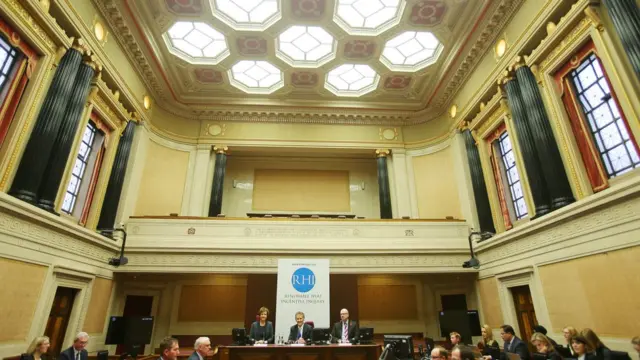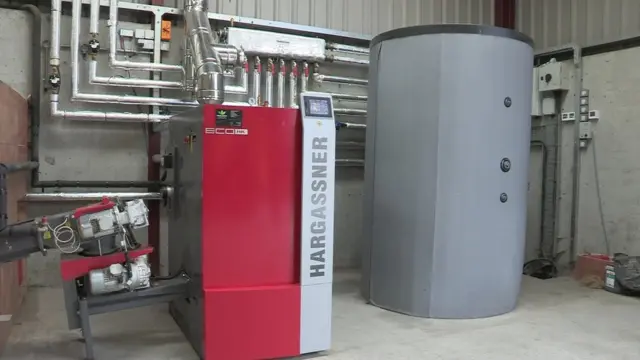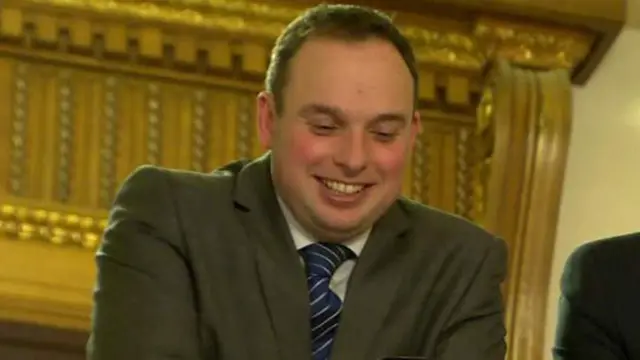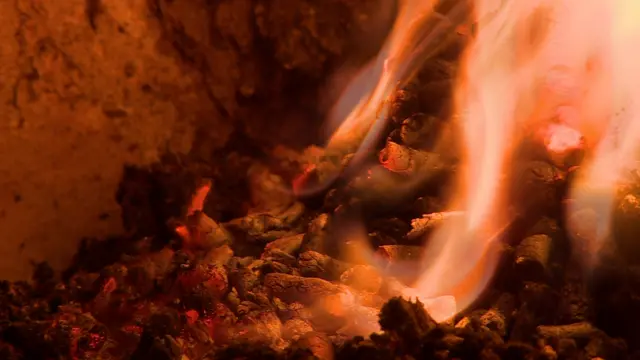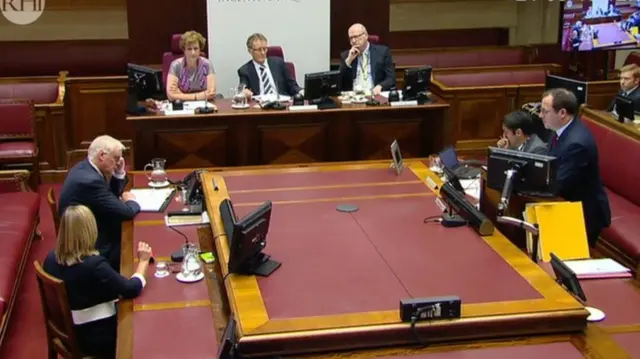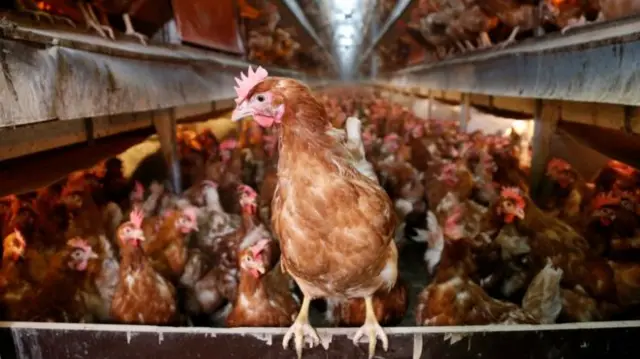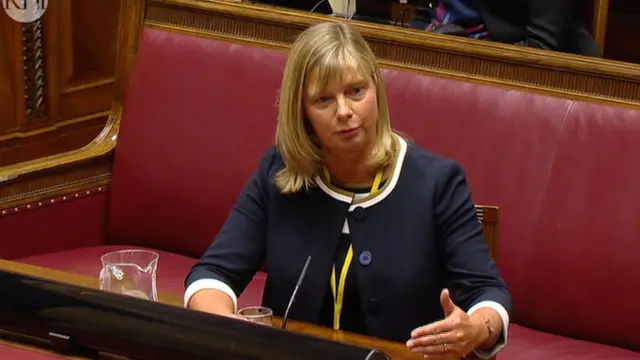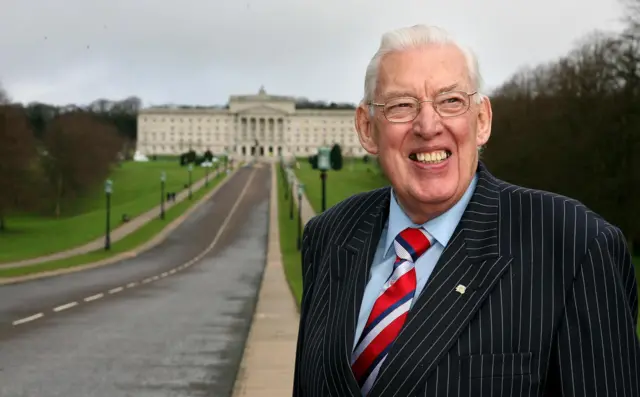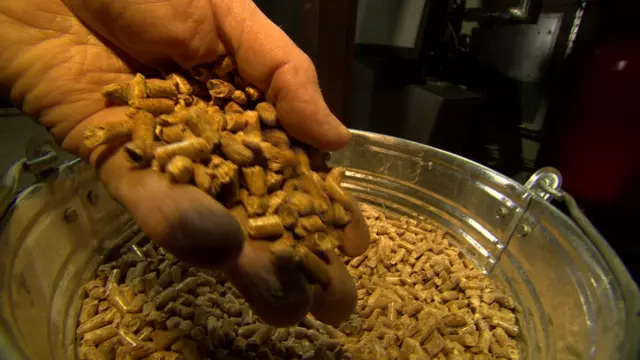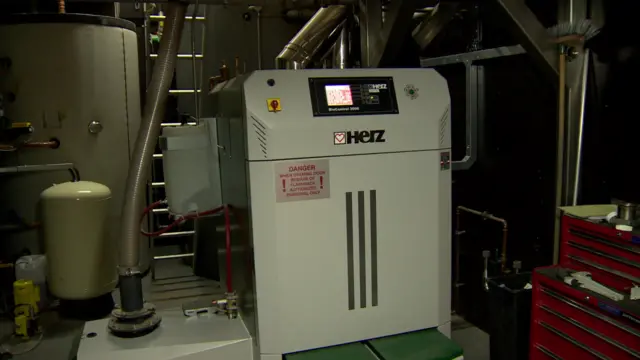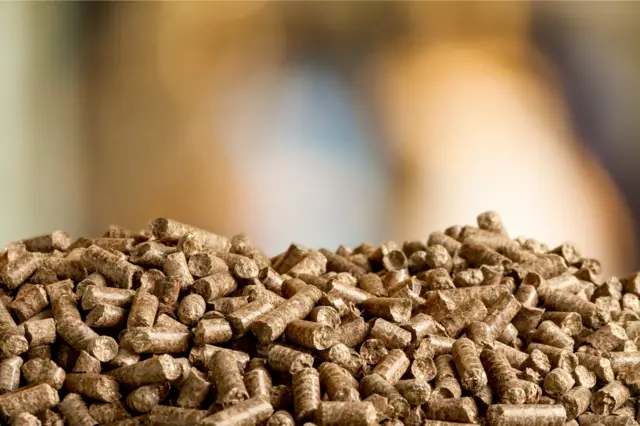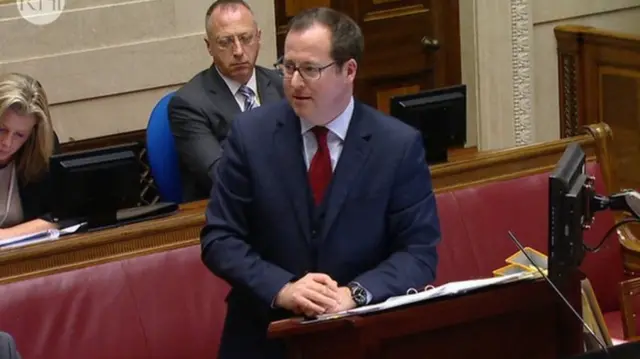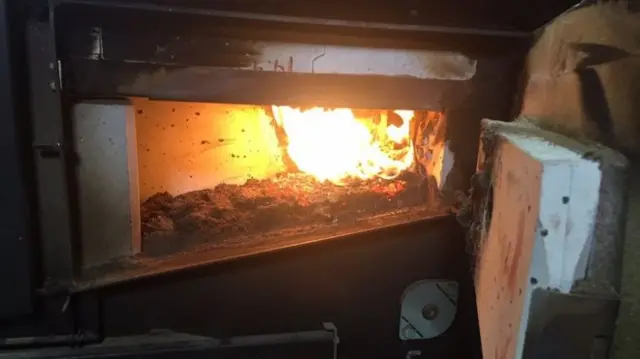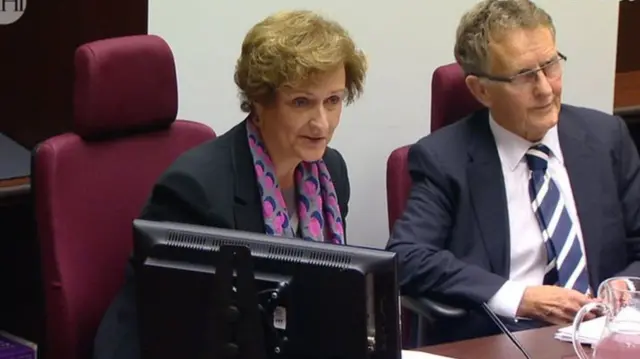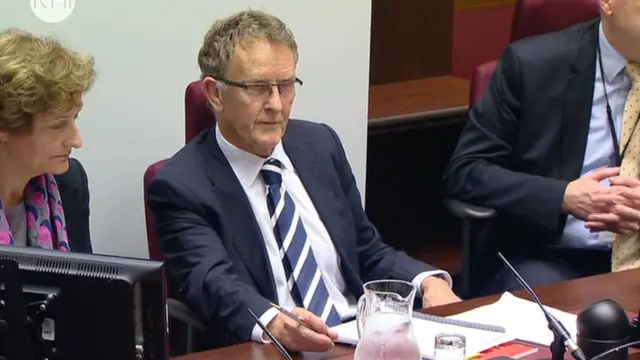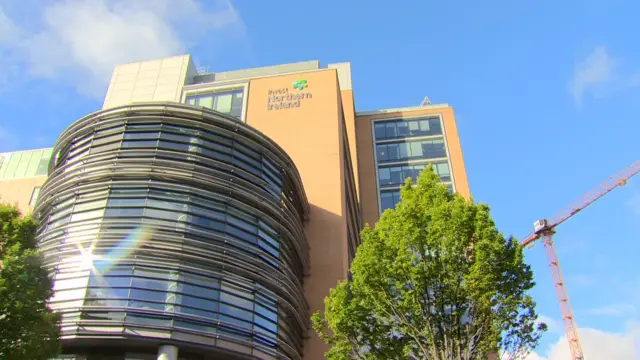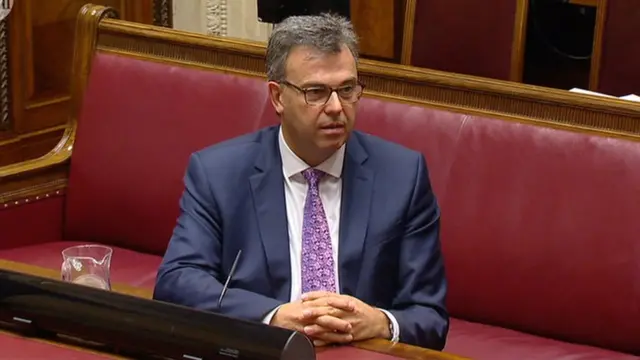That's all for this week...published at 14:04 BST 21 September 2018
Inquiry counsel Donal Lunny wraps up his questioning of Janet McCollum in double-quick time and that's it for today.
If you were poised for a gripping afternoon session we're afraid you'll have to wait until Tuesday for what will be the biggest week of the RHI Inquiry so far.
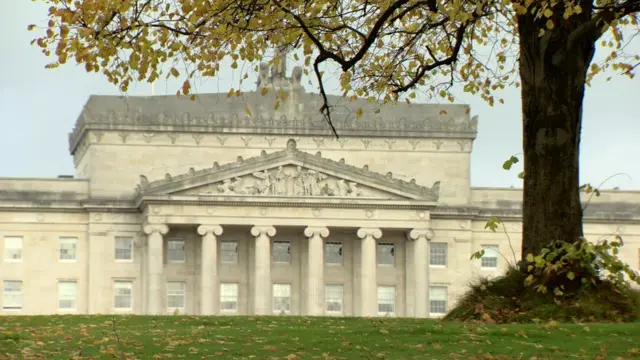
It starts with the return of the DUP leader and former first minister Arlene Foster, while Wednesday, Thursday and Friday will all feature current or former senior DUP advisers.
We'll bring you everything as it happens so join us from 09:45 on Tuesday.
Have a terrific weekend...

